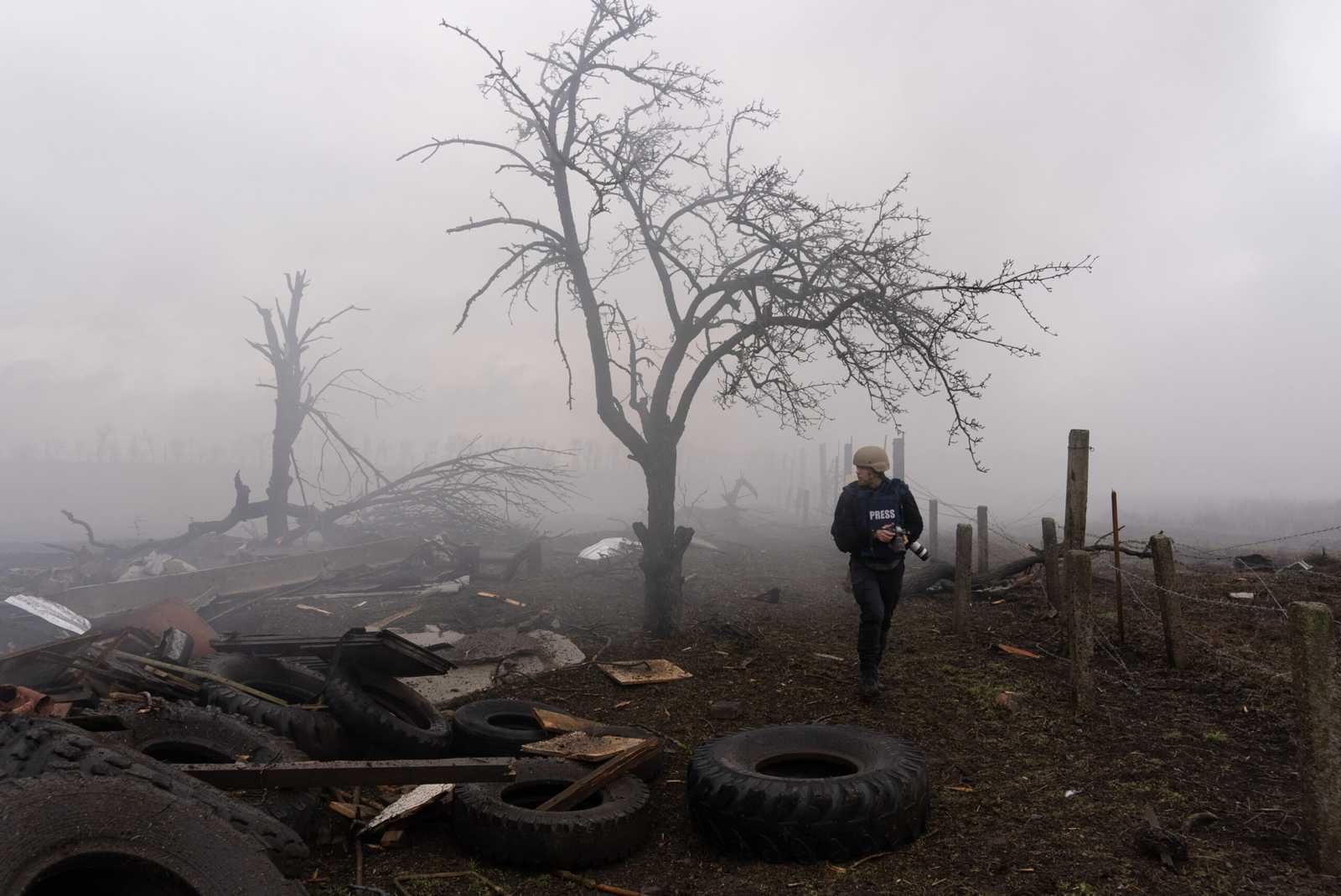On Mar. 10,“20 Days in Mariupol” won the Oscar for Best Documentary Feature Film at the 96th Academy Awards. The film shows Ukrainian journalist and filmmaker Mstyslav Chernov, as he documents the start of the February 2022 Russian invasion in the Ukrainian city of Mariupol. The film excludes nothing, and shows the true horrors experienced by its citizens.
Watching the documentary is not easy, and that’s intentional. It’s not supposed to be a light-hearted human-interest story that gives the audience hope. The film shows brutality, death, and grief all without offering any answers on how this could be stopped.
A grisly reality
One of the documentary’s major themes is a struggle for both the journalists and the citizens to understand when it is time to stop recording.
A powerful image early in the film showcases a doctor in Mariupol attempting to save the life of a young child injured during a Russian bombing. The doctors and nurses do everything that they can to keep their small patient stable, but nothing seems to work. Finally, as the child dies, the doctor looks over to Chernov, insisting that he continue to film. The doctor wants the world to see the damage and pain caused by the Russian invasion. He wants everyone to know that this isn’t a peaceful military operation.
There are also moments in the film where Chernov faces backlash from citizens who are questioning why he is trying to interview them during a time of crisis. He again explains to them that this isn’t for his pleasure; he records so he can show the world what is truly happening.
Journalism is important during any time of conflict, but especially in this age of misinformation, disinformation, and information suppression. The importance of this coverage comes across greatly in “20 Days in Mariupol,” as you see in detail the horrors of war, and the suffering of Mariupol’s people.
The documentary also shows how horrific and dangerous it can be to document these conflicts. Living in a country where we have the privilege to feel safe in our own country can make us blind to what is happening within our world. This is why having journalists document atrocities is ultimately so important; we need to see what is happening to understand why it needs to stop.
Arguably the most heartbreaking aspect of the film is that it takes place nearly two years ago. So much more fighting, destruction, and terror has been inflicted on the Ukrainian citizens has occurred since, and though the public’s attention might be focused on other, newer conflicts, the film reminds us this is still happening right now.
Chernov and his team did not have the goal of taking home a shiny gold trophy. They wanted the world to understand what the war in Ukraine looks like from the perspective of its citizens.
Standing against suppression
One of the pillars of the Society of Professional Journalists’ Code of Ethics is to seek the truth and report it. “20 Days in Mariupol” is a prime example of living up to that value and shining light on something that the world has left in the dark. It is difficult to get trustworthy information from the war in Ukraine, this film takes words and turns them into images, real images that cannot be forged or twisted.
We hope to draw attention to the work that Chernov and his crew did to tell this story. This team risked their lives so they could bring justice to those being targeted in this conflict.
According to the Committee to Protect Journalists, 2023 was the deadliest year for journalists since the organization started tracking this data in 1992. The Reporters Without Borders World Press Freedom Index ranks the United States 45 out of 180 nations. For a country that has press freedom enshrined in our Constitution, and in light of Chernov’s work, it is scary to see journalists being censored inside and outside of our borders.




